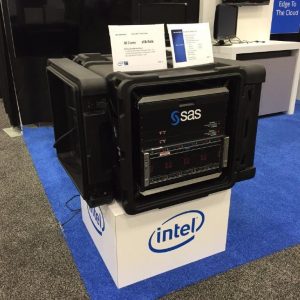 Tell me if you’ve heard this before: Your company hired (or re-titled) a talented data scientist and they have great skills and no data. Or they're marginalized by IT because they're misunderstood. They're offered “cleansed” data that will fit into the hardware provisioned. What they want is “all” relevant data and no constraints on size. They quickly learn to keep their hands off production environments, yet that’s where the latest data is!
Tell me if you’ve heard this before: Your company hired (or re-titled) a talented data scientist and they have great skills and no data. Or they're marginalized by IT because they're misunderstood. They're offered “cleansed” data that will fit into the hardware provisioned. What they want is “all” relevant data and no constraints on size. They quickly learn to keep their hands off production environments, yet that’s where the latest data is!
So what can you do, if you have a utility data scientist that feels stymied?
First off, you may want to compare the roles and responsibilities that have been established with that of similar people in other companies. This guide includes answers to the most common questions and interviews with data scientists.
Given our work with utilities around the world, we offer these additional tips to maximize potential and accelerate innovation:
- Build a sandbox - the safe zone for creative exploration. Innovation begets more innovation. To avoid stifling the curiosity of the rare utility data scientist, leadership from business and IT are seeking ways to establish sanctioned analytic sandboxes for rapid prototype development. Hadoop’s ability to store large volumes of data and retrieve them quickly, as well as it’s relatively low cost, has catapulted its adoption across all industries.
- Shorten project cycles. Project cycles can be lengthy, ultimately delivering a product that doesn’t meet the current needs. How do we shorten cycles to deliver results while the iron is still hot? In agile methodology, this requires rapid prototyping. If you don’t have the internal skillsets, you can rely on a partner like SAS to augment your bench. For short-term analytical work, our data scientists are available to join your team as remote development support.
 Augment your analytical environment by contracting hardware and software for short sprints – on premise or in the cloud. SAS and Intel recently partnered up to provide an innovative processing and in-memory architecture uniquely designed to make full use of SAS analytics. Just bring your data and get started! You can prototype new analytics capabilities right away, empowering you to focus on your use cases and realize business value quickly.
Augment your analytical environment by contracting hardware and software for short sprints – on premise or in the cloud. SAS and Intel recently partnered up to provide an innovative processing and in-memory architecture uniquely designed to make full use of SAS analytics. Just bring your data and get started! You can prototype new analytics capabilities right away, empowering you to focus on your use cases and realize business value quickly.
“If your organization is exploring new analytics initiatives, Intel and SAS offer a special program to help your company harness the power of new business analytics quickly.”
Sam Harrell, Director, Energy Vertical, Intel
- Adopt flexible software. One size definitely does not fit all when it comes to analytics. Selecting a software vendor that brings more than one analytic flavor to the table. Today’s data scientist may be skilled in Python, R, SAS and others. An “open” analytic platform provides both governance and unbounded potential for innovation.
As the utility business is changing and adapting to new market and customer expectations, the contribution of data scientists will be increasingly important. The analysis behind the data-driven decisions that they support directly affect how the utility invests in the smart grid, drives enhanced customer satisfaction, and optimizes operating procedures. Making the most of these valued resources is a key challenge now and in the years ahead.
SAS and Intel will be at Utility Analytics Week from 1st to 3rd November. Meet our teams, catch the sessions, discussing analytics and the grid or change and challenges with analytics. Or, if you arrive early, check out the preconference session, about becoming a competitive energy provider.
